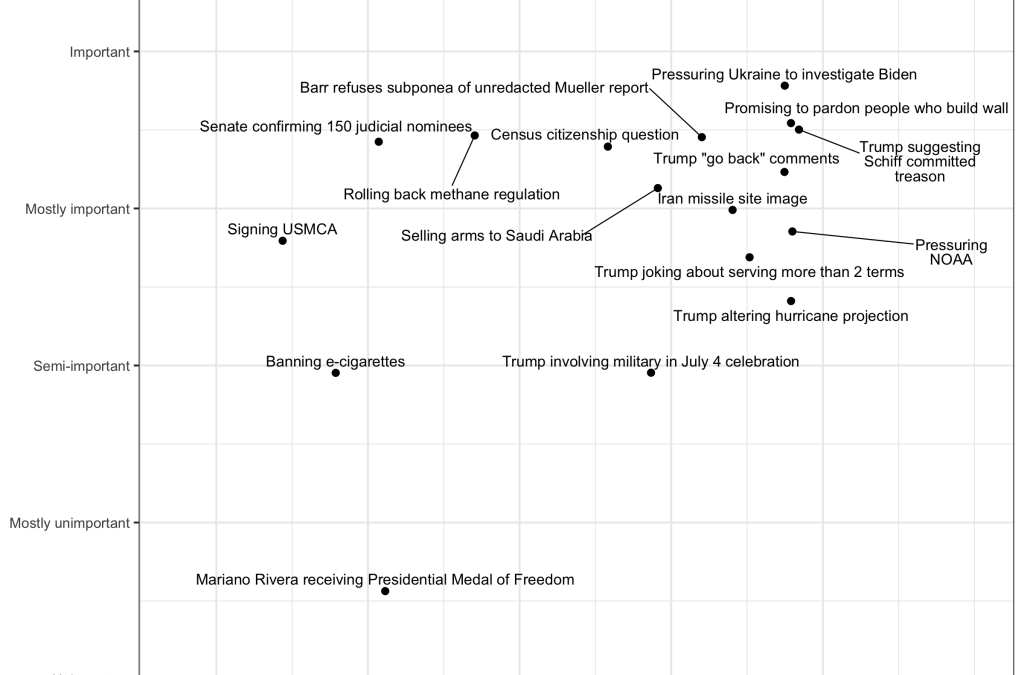The Chicago Center on Democracy is the home of Bright Line Watch, a multi-university initiative to monitor the state of U.S. democracy. We do this by administering a regular survey to political scientists and a representative sample of the American public about how the country is performing on a set of 28 democratic principles. Earlier this week, we completed the most recent survey wave, the ninth since the initiative’s start in fall 2016. Some of the key findings from this survey include:
- Perceptions of the overall performance of American democracy have remained stable over time, but assessments on certain specific democratic principles have declined substantially. Especially sharp declines were observed for four principles:
- Government agencies are not used to punish political opponents
- The presence of effective limits on the authority of the executive
- The independence of investigations into wrongdoing by public officials
- Keeping U.S. elections free from foreign influence
- Experts again rate numerous recent events that have taken place during the Trump presidency as both important and abnormal. President Trump’s effort to pressure Ukraine into investigating Joe Biden, a potential 2020 election opponent, scores especially high on this dual metric (comparable to Trump’s summit with Vladimir Putin in Helsinki).
- Both political scientists and the public view some “constitutional hardball” tactics as appropriate but see others as inappropriate. For example, impeachment, admitting Puerto Rico and Washington, DC as states, and determining the presidency by national popular vote are typically viewed appropriate. Conversely, gerrymandering, disenfranchising partisan opponents, and presidential self-pardons are all widely regarded as inappropriate.
Those who are interested in reading more about this survey’s findings can do so here.
